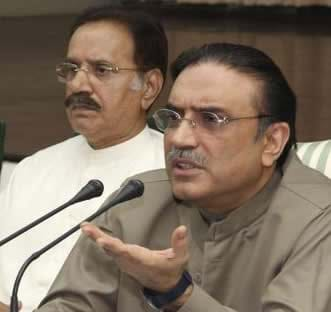Pakistan's president is set to lift a nationwide state of emergency amid mounting criticism that general elections scheduled for next month will not be free and fair,Pervez Musharraf is expected to lift the six-week long emergency rule on Saturday, a day after he made changes to Pakistan's constitution.
Thousands of political opponents were jailed, opposition judges were sacked and restrictions were placed on the media in what Musharraf called an attempt to secure national stability.
Critics of Musharraf say emergency is only being lifted to placate countries such as the US, which has close links to Musharraf in the so-called war on terror being fought in the region.
Although Pakistanis are said to be pleased the emergency is being lifted, some say the damage has already been done.
Ashan Iqbal, a spokesman for the political party of Nawaz Sharif, a former prime minister, said: "This is like a murderer who turns in his weapon and then claims he has been absolved of the crime."
Constitutional amendments
Critics of Musharraf say the independence of the law courts and the credibility of a parliamentary election scheduled for January 8 have been damaged.
There has been recent conflict in Pakistan, mostly targeting the military, since an army raid in July on a mosque led by an imam who is supportive of the Taliban.
About 450 people have died in attacks since the raid on the Lal Masjid (Red Mosque) in Islamabad.
Musharraf insisted that emergency rule, imposed on November 3, was needed to restore order.
On Friday, he made changes to the constitution to boost his legal power, hours before the emergency ordinance was due to end.
Musharraf removed a condition from the charter stating that civil servants had to wait two years after their retirement before running for elected office, Malik Qayyum, Pakistan's attorney-general, said.
"The clause asking for a wait of two years for any government servant after retirement has been removed," he said.
He said other changes sealed the forced retirement of purged supreme court judges, including Iftikhar Chaudhry, the former chief justice.
Courts 'unsupportive'
Musharraf imposed emergency law a month after he was re-elected as president.
When imposing the law, Musharraf said the courts were not being supportive in moves to crack down on opposition fighters.
Musharraf's opponents have said that he wanted to remove judges who could have permitted legal challenges to his election as president while he was still head of the nation's military.
Musharraf's election as president was validated by the supreme court after key opposition judges were arrested.
He then stood down as army chief, bowing to international pressure to become a civilian leader.
The government said on Friday that basic rights would be restored at the end of emergency law, but that no retroactive challenges to the emergency rule's legality would be entertained.
"All fundamental rights of the citizens will stand restored with the lifting of emergency," Qayyum said
Source: maroc,post







